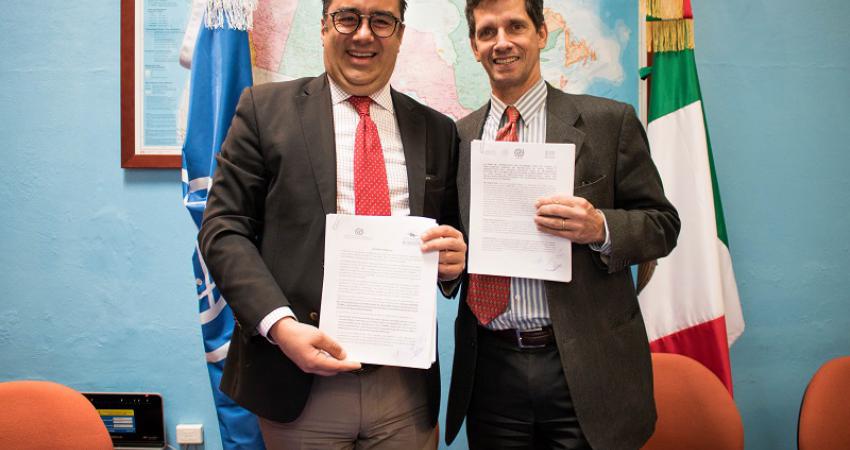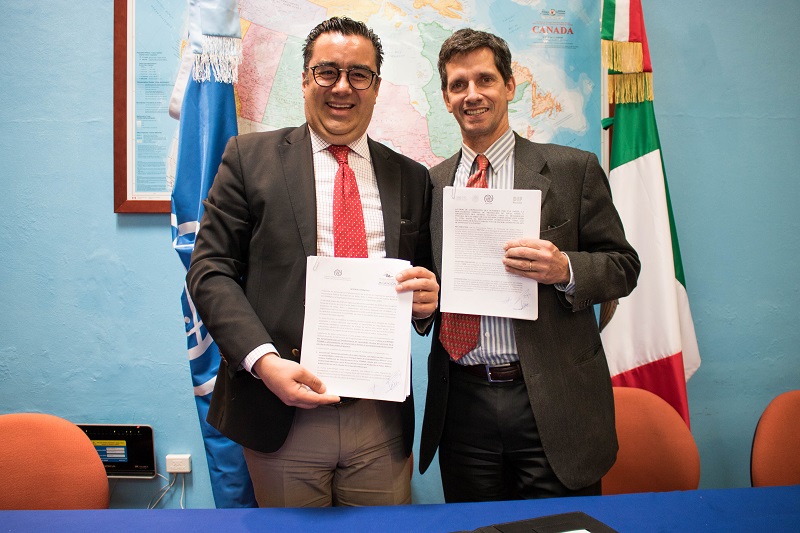IOM Mexico and the Federal Attorney’s Office for the Protection of Children and Adolescents agree to strengthen action regarding migrant children


The Representative of the International Organization for Migration in Mexico, Christopher Gascon, and the Federal Attorney for the Protection of Children and Adolescents, Luis Enrique Guerra García, during the signing of the cooperation agreement regarding migrant children. Photo: IOM Mexico.
Mexico City, 9 March 2018. – IOM Mexico and the Federal Attorney’s Office for the Protection of Children and Adolescents (PFPNNA) of the National System for Integral Family Development (DIF) have signed a cooperation agreement that will strengthen the institutional capacity of the Attorney’s Office regarding migrant children.
“For IOM Mexico, the signing of this agreement is another opportunity to collaborate with the DIF. IOM Mexico will contribute to strengthening the knowledge of the trainers at the Attorney’s Office through trainings; the public servants who take these courses will be able to implement their knowledge in their institution,” asserted Christopher Gascon, the Representative of the International Organization for Migration in Mexico.
The partnership is considering technical support provided by IOM Mexico to the Attorney’s Office through a tool developed by IOM Mesoamerica Program: the “Specialized Course on migrant children, with emphasis on unaccompanied or separated migrant children in the Northern Triangle of Central America and Mexico” and the Learning Platform on Migration (PAM).
For his part, the Federal Attorney for the Protection of Children and Adolescents, Luis Enrique Guerra García, emphasized that, “It is important that the Federal Attorney’s Office for the Protection of Children and Adolescents and the National DIF have a means of coordinating with IOM Mexico because it will allow public servants to depend on specialist knowledge. The creation of these agreements benefits IOM and National DIF because it accomplishes the goal of having better prepared public servants.”
The objective of the trainings is to provide concrete knowledge and increase awareness of the needs and rights of migrant children and adolescents, for the purpose of developing effective actions for this population. The trainings are based on participative and constructive methodologies in order to encourage the application of the knowledge.